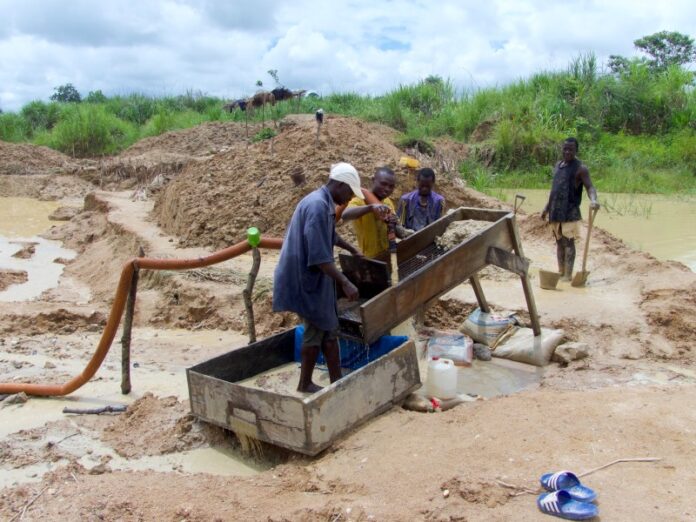Illustrative Image: Q-Methodology Reveals Diverse Stakeholder Perspectives on Public Health in Mozambique’s Large-Scale Mining Sector
Image Source & Credit: Miningreview
Ownership and Usage Policy
A recent study by Proksik et al. (2025) titled “Using Q‐methodology for policy research and stakeholder engagement to strengthen public health in large‐scale mining in Mozambique” published in Sustainable Development reveals that sstakeholders in Mozambique’s mining regions hold four distinct public health perspectives, revealing diverse priorities, institutional distrust, and need for inclusive policies.
“
Mozambique’s mining stakeholders hold four distinct public health perspectives, highlighting diverse priorities, institutional distrust, and need for inclusive policies.– Proksik et al. 2025
The study investigates how public health concerns in mining regions can be more effectively addressed through inclusive policy-making and stakeholder engagement. The research aims to understand diverse stakeholder perspectives on health issues related to large-scale mining, systematically capture and analyze these viewpoints using Q-methodology, and inform more responsive and inclusive public health policies in Mozambique’s mining sector. A wide range of stakeholders were engaged, including community members living near mining sites, health professionals, government officials, and mining company representatives. This diversity helped uncover conflicting priorities as well as areas of consensus. Key insights from the study highlighted concerns over environmental degradation, lack of healthcare access, and poor regulatory enforcement. While some stakeholders emphasized the economic benefits of mining, others prioritized health and ecological sustainability. The Q-methodology analysis revealed four distinct viewpoints, each reflecting different values and priorities.
How the Study was Conducted
The study employed Q-methodology, a structured approach designed to capture subjective viewpoints and uncover patterns in stakeholder perspectives on public health in mining regions. The researchers began by developing a set of statements related to public health and mining, drawn from literature, interviews, and policy documents. Participants were then asked to rank these statements on a scale from “most agree” to “most disagree” through a Q-sort process, creating a forced distribution that reflected their personal views.
A total of 34 stakeholders participated, representing a diverse mix of perspectives, including community members living near mining sites, health professionals, government officials, and mining company representatives. This diversity ensured that a broad spectrum of opinions and experiences was captured.
Each participant’s Q-sort was analyzed using factor analysis, which grouped similar sorting patterns and revealed four distinct viewpoints, each representing shared perspectives among subsets of participants. These factors were then interpreted to understand the underlying values and priorities of stakeholders regarding public health and mining.
The study was conducted in Tete Province, Mozambique, a region heavily impacted by large-scale mining. All research activities were carried out with ethical approval and informed consent, ensuring transparency and respect for participants.
What the Authors Found
The authors found that stakeholders in Mozambique’s large-scale mining regions hold four distinct perspectives on public health—community-centered concern, institutional responsibility, economic optimism, and skeptical engagement—highlighting diverse priorities, shared distrust in institutions, and the need for inclusive, context-sensitive policy-making.
Why is this important
Real-World Relevance – Large-scale mining drives economic growth but poses serious health and environmental risks, often sidelining public health concerns.
Inclusive Policy-Making – Q-methodology captures diverse stakeholder perspectives, including marginalized groups, ensuring policies reflect community experiences rather than just corporate or government interests.
Practical Implications – Insights from the study can guide targeted, accepted health interventions and foster trust between institutions and communities for sustainable development.
Methodological Innovation – Applying Q-methodology in public health provides a replicable model for other sectors facing stakeholder conflicts, such as agriculture, energy, or urban planning.
What the Authors Recommended
- The study suggests that policymakers should include community members, health professionals, government officials, and mining companies to ensure context-sensitive, socially legitimate health interventions.
- The study suggests that policymakers should use methods like Q-methodology to capture stakeholder viewpoints and bridge gaps between technical experts and local communities.
- The study suggests that policymakers should enhance transparency, enforce health-protective regulations, and promote intersectoral collaboration to address complex public health challenges.
- In addition, implement stronger safeguards and monitoring systems to mitigate environmental degradation and associated health risks.
- Furthermore, apply Q-methodology in other resource-rich or conflict-prone sectors, such as agriculture, urban planning, and energy development.
The study demonstrates that understanding diverse stakeholder perspectives through Q-methodology is essential for designing inclusive, context-sensitive public health policies in Mozambique’s mining regions, fostering trust, mitigating health risks, and promoting sustainable development.
















 The African Research (AR) Index is a comprehensive scholarly directory and database focused explicitly on journal publishers that publish and disseminate African research.
The African Research (AR) Index is a comprehensive scholarly directory and database focused explicitly on journal publishers that publish and disseminate African research.

